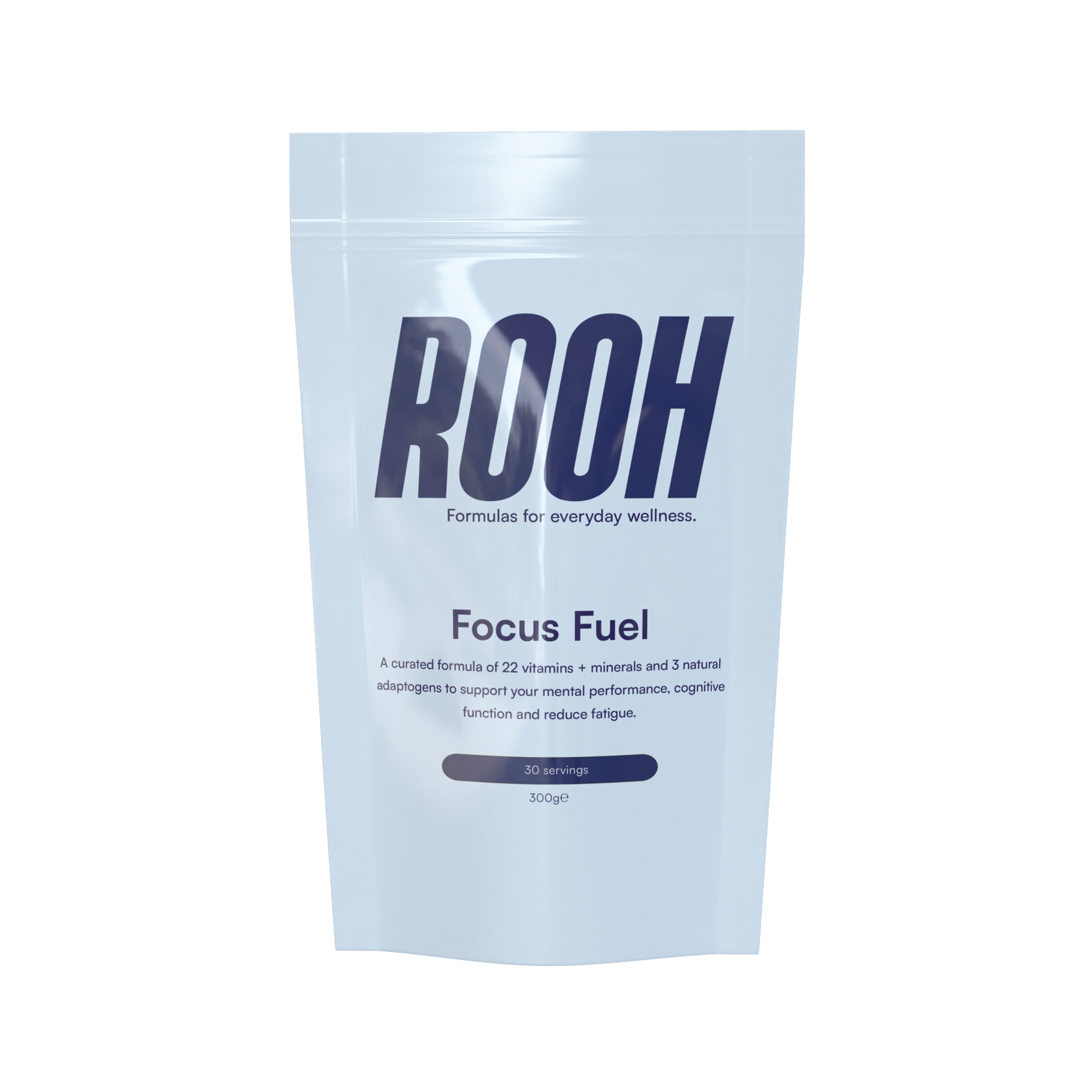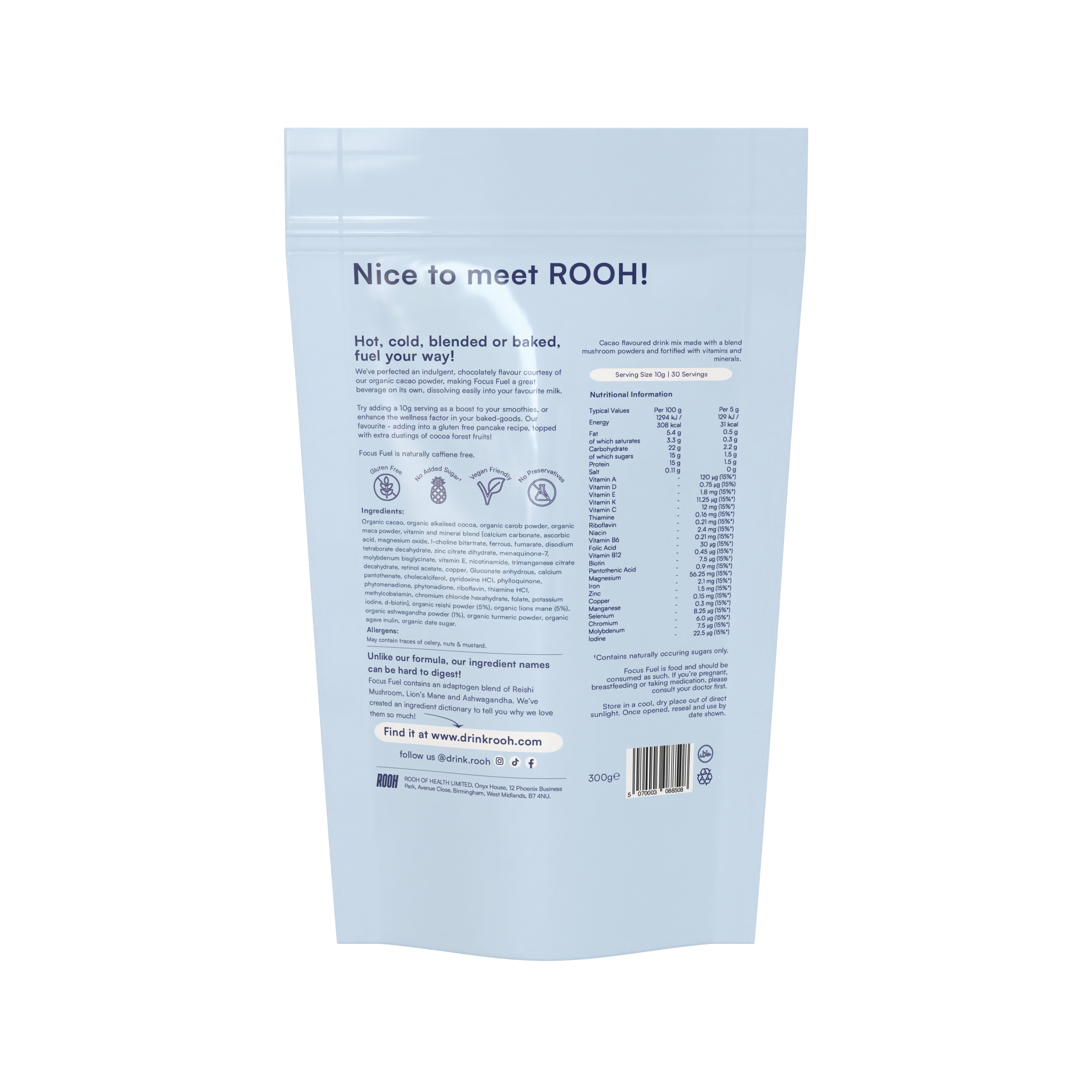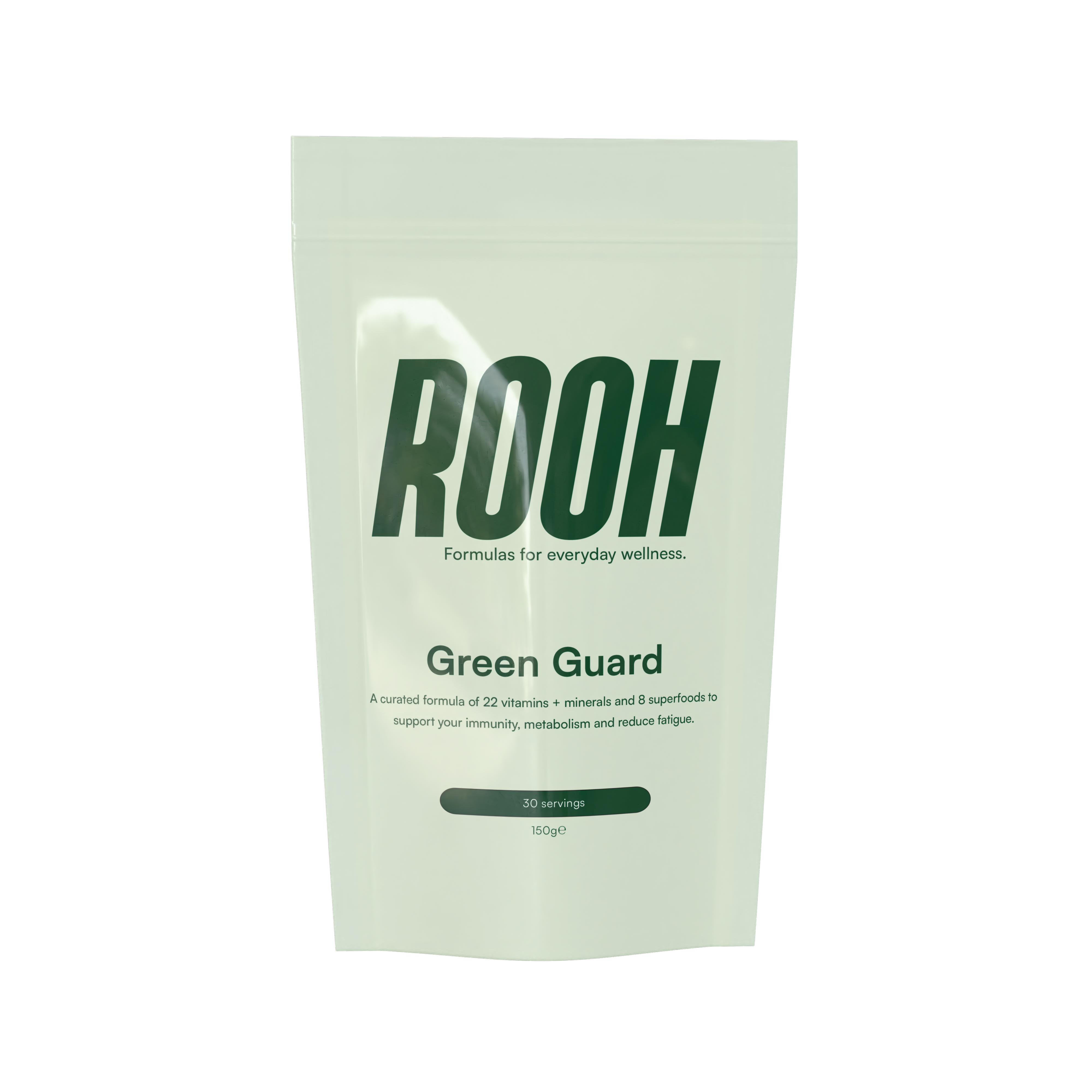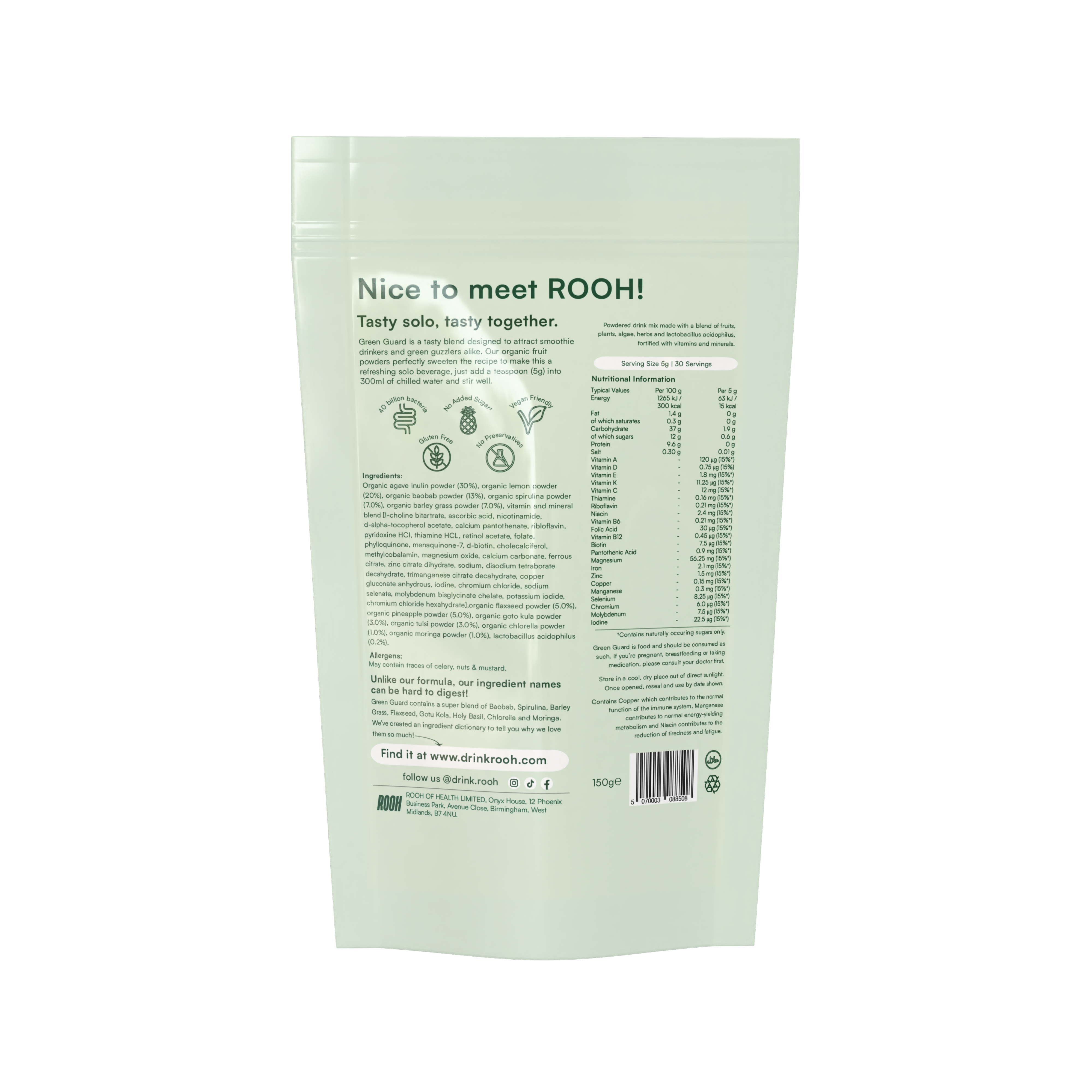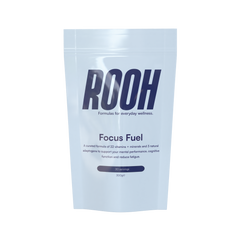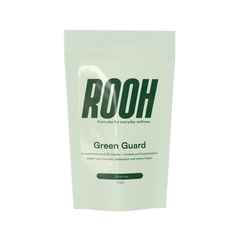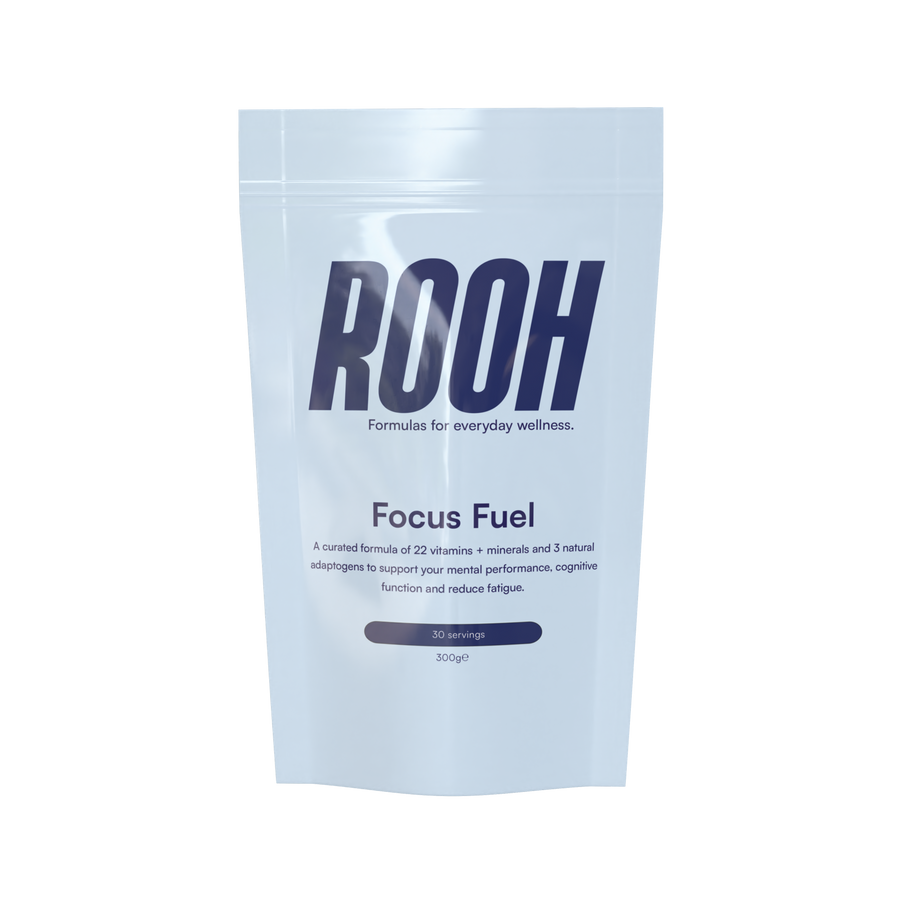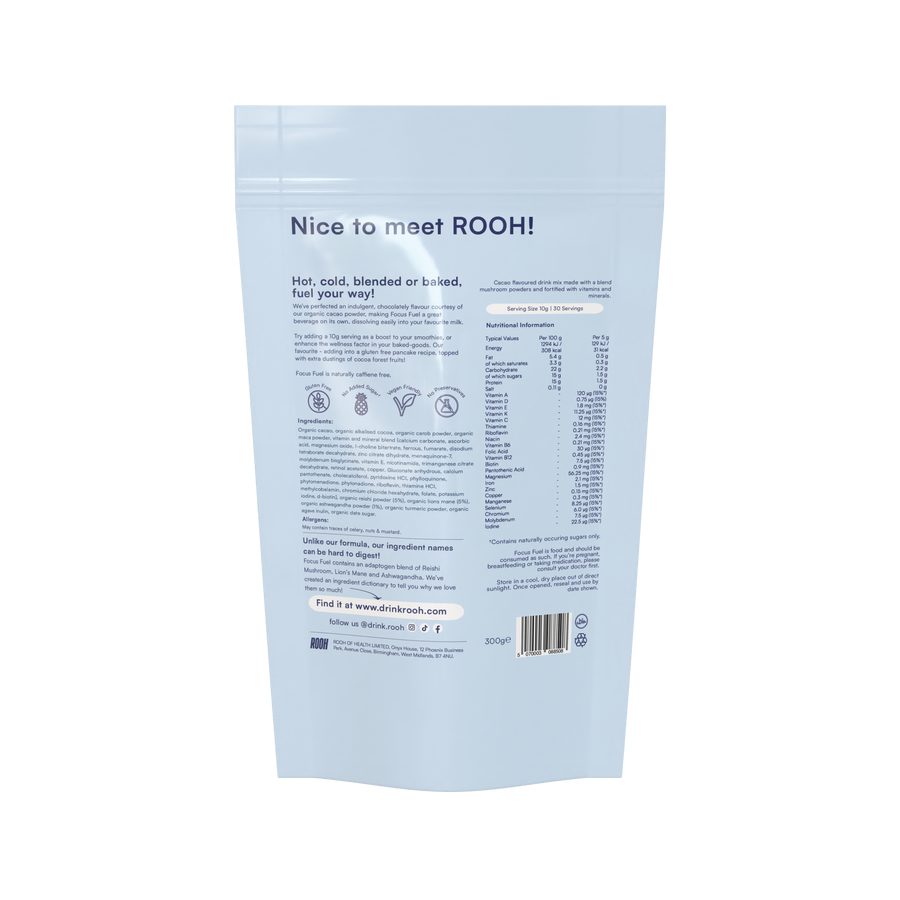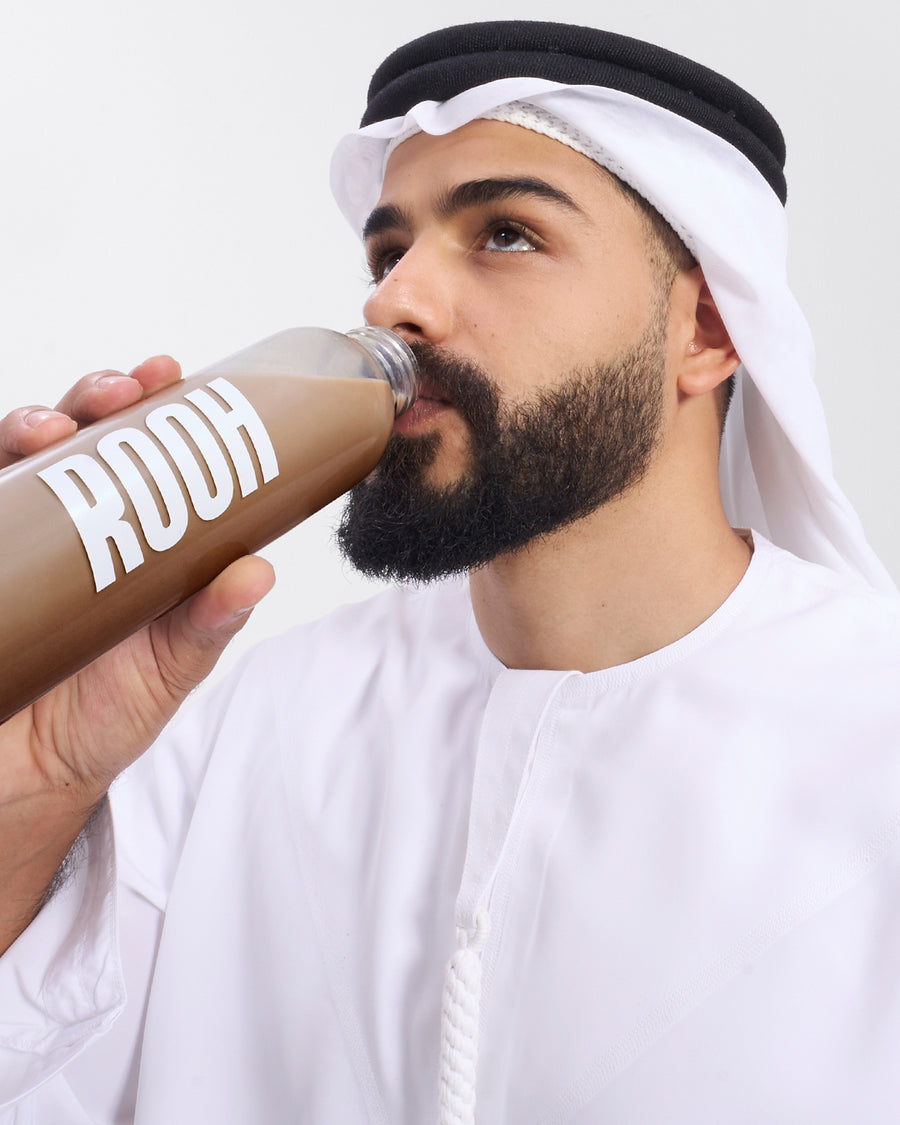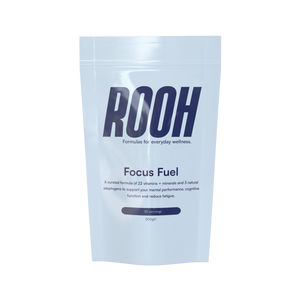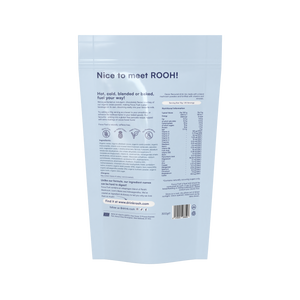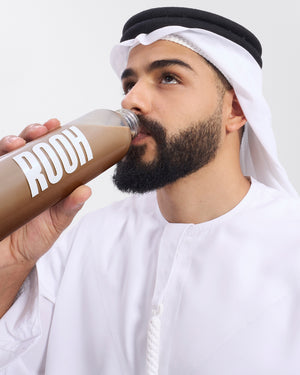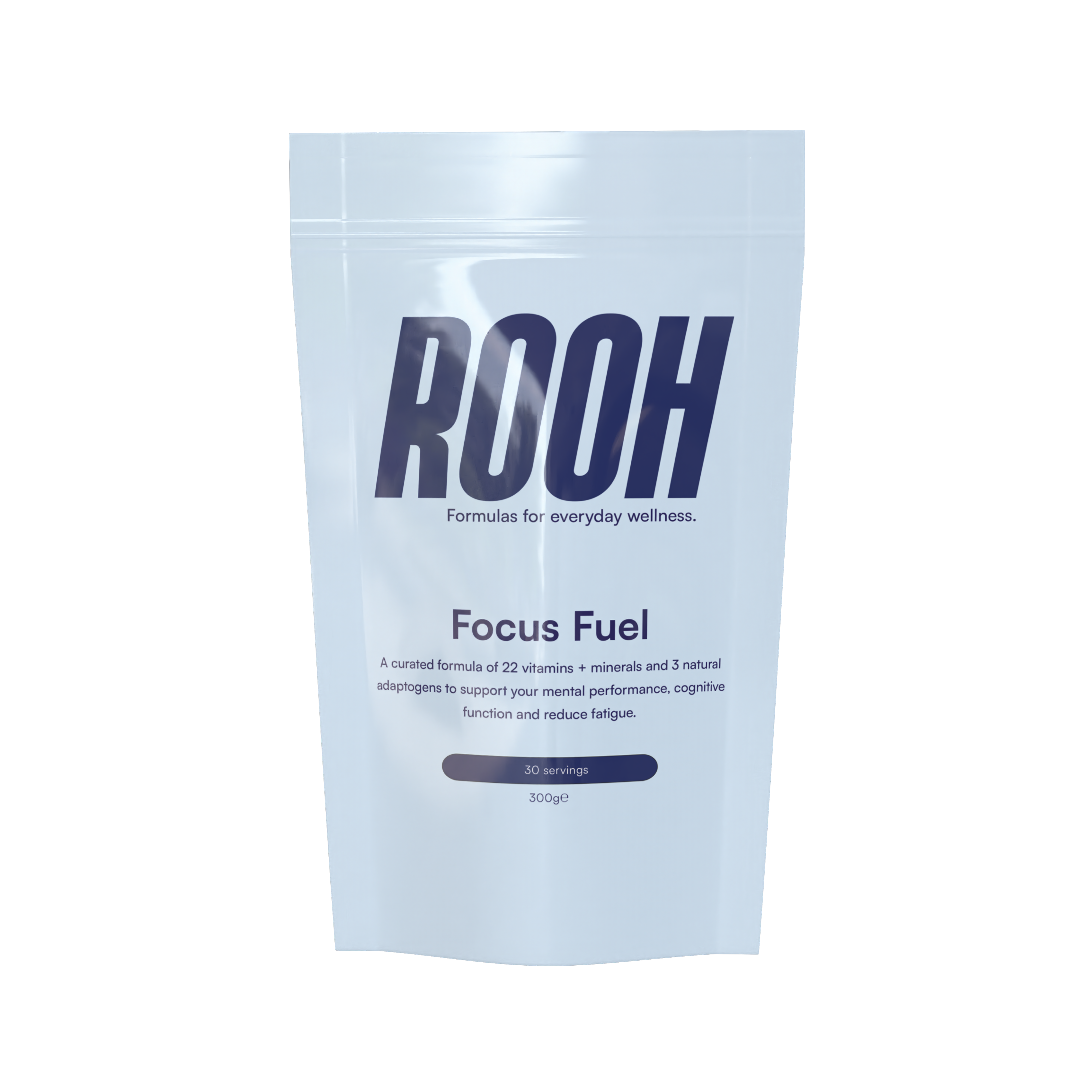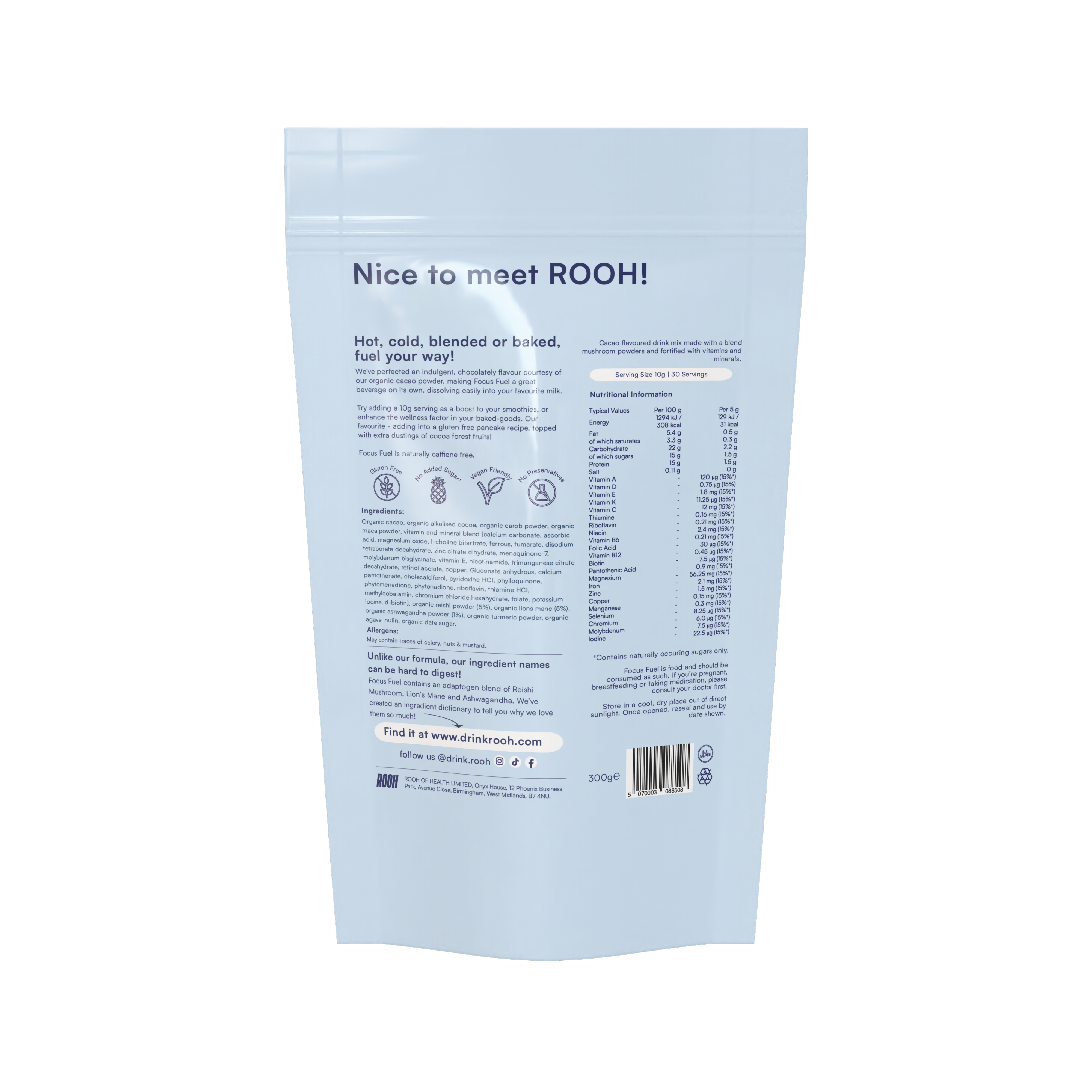ADHD, or Attention Deficit Hyperactivity Disorder, can make everyday tasks like staying focused and attentive quite challenging. While conventional treatments often include medications that can help manage symptoms, many individuals seek natural options to support their attention and focus. One such natural remedy that has gained recognition for its potential benefits for individuals with ADHD is magnesium. In this article, we'll explore how magnesium can help improve focus and attention, especially for those managing ADHD, and why it might be an important addition to your routine. You’ll also learn how you can use ROOH’s Focus Fuel and Green Guard as great sources of magnesium if you’re looking to incorporate more into your diet.
Understanding ADHD and Its Challenges
ADHD affects millions of people worldwide, and it’s characterised by symptoms like hyperactivity, impulsiveness, and difficulty in maintaining attention. The condition can be overwhelming, especially for children and adults who struggle to keep up with their daily responsibilities at school, work, or home. While prescription medications can help mitigate these symptoms, they are often accompanied by side effects such as anxiety, insomnia, and reduced appetite. This is why many are turning towards nutritional solutions that can help improve focus and manage ADHD naturally (Mousain-Bosc et al., 2006).
What is Magnesium and Why is it Important?
Magnesium is an essential mineral that plays a crucial role in over 300 biochemical reactions in the body. It is vital for maintaining normal nerve and muscle function, supporting a healthy immune system, and keeping bones strong. Importantly, magnesium is also critical for brain health—it aids in neurotransmitter function, nerve signal transmission, and the regulation of mood. Despite its significance, magnesium deficiency is surprisingly common, especially among individuals with ADHD.
Magnesium is known as the "calming mineral" because of its ability to regulate the nervous system and support overall relaxation. A lack of sufficient magnesium can lead to increased stress, restlessness, irritability, and anxiety—symptoms that often overlap with ADHD (Alghamdi & Alfrayh, 2021).
Magnesium Deficiency and ADHD
Studies have shown that individuals with ADHD are more likely to be deficient in magnesium compared to the general population. A magnesium deficiency can manifest in symptoms such as irritability, anxiety, hyperactivity, and concentration problems—all of which are typical of ADHD. This correlation suggests that ensuring adequate magnesium intake could help alleviate some ADHD symptoms.
A lack of magnesium can lead to an overactive nervous system, which can exacerbate hyperactivity and impulsivity. Supplementing magnesium can help calm the nervous system and reduce these symptoms, making it easier for individuals to stay focused and attentive (Bartrés-Faz & Arenaza-Urquijo, 2011).
How Magnesium Helps with Attention and Focus
Magnesium supports several functions in the brain that are particularly relevant to those with ADHD. Here are some of the ways magnesium can improve attention and focus:
1. Supports Neurotransmitter Function
Magnesium plays an essential role in the regulation of neurotransmitters, which are chemicals that transmit signals in the brain. One of these neurotransmitters is dopamine, which is crucial for focus, attention, and motivation. People with ADHD often have lower levels of dopamine, leading to difficulties with maintaining concentration. By supporting the production and function of dopamine, magnesium helps improve attention span and mental clarity (Alghamdi & Alfrayh, 2021).
2. Reduces Stress and Anxiety
Stress and anxiety can make ADHD symptoms worse, making it even harder to focus. Magnesium has been shown to have a calming effect on the body by regulating the activity of the hypothalamic-pituitary-adrenal (HPA) axis, which controls the body’s response to stress. By helping to reduce stress levels, magnesium makes it easier to concentrate and stay focused.
3. Balances the Nervous System
Magnesium acts as a natural relaxant for the nervous system. It helps reduce the hyperactivity that is often associated with ADHD by calming nerve activity and preventing overstimulation. This calming effect can be extremely beneficial for those with ADHD, helping to minimise symptoms such as restlessness and impulsivity (Bartrés-Faz & Arenaza-Urquijo, 2011).
4. Improves Sleep Quality
Many individuals with ADHD struggle with sleep, which can further impact their ability to concentrate during the day. Magnesium helps promote relaxation and improves sleep quality by regulating melatonin, the hormone responsible for sleep-wake cycles. Better sleep means better cognitive function and focus during the day, which can be particularly beneficial for those managing ADHD (Moshfegh et al., 2005).
Magnesium-Rich Foods for ADHD
While magnesium supplements are available, it's always best to get nutrients from natural food sources when possible. There are several magnesium-rich foods that can easily be incorporated into your diet to support better focus and attention, including:
- Leafy Green Vegetables: Spinach, kale, and Swiss chard are excellent sources of magnesium.
- Nuts and Seeds: Almonds, pumpkin seeds, and sunflower seeds are high in magnesium and make a great snack.
- Whole Grains: Quinoa, brown rice, and oats contain significant amounts of magnesium.
- Legumes: Black beans, chickpeas, and lentils are rich in magnesium and can be added to various meals.
- Bananas and Avocados: These fruits are also good sources of magnesium and can be easily added to smoothies or salads.
Incorporating these foods into your daily meals can help maintain adequate magnesium levels, which in turn can improve focus and manage ADHD symptoms naturally.
Focus Fuel and Green Guard: Natural Solutions for ADHD Support
In addition to magnesium-rich foods, incorporating holistic wellness drinks like Focus Fuel and Green Guard by ROOH can further support focus and energy levels. Focus Fuel contains a blend of superfoods, including raw cacao, turmeric, and adaptogens like Lion's Mane and Ashwagandha, which are all known for their cognitive-enhancing and stress-reducing properties. Moreover, Focus Fuel provides 30% of your daily recommended value (NRV) of magnesium, supporting brain health and enhancing focus. Green Guard, another powerful wellness drink by ROOH, contains 15% of your daily NRV of magnesium, making it an excellent choice for maintaining balanced magnesium levels.
The combination of beneficial ingredients in Focus Fuel and Green Guard works synergistically to support cognitive health, reduce stress, and enhance mental clarity—all of which are crucial for managing ADHD symptoms. Pairing Focus Fuel with a magnesium-rich diet can be an effective approach to naturally boost attention and focus.
How to Safely Supplement with Magnesium
If you are considering magnesium supplementation, it's important to consult with a healthcare professional to determine the appropriate dosage. Magnesium supplements are available in various forms, such as magnesium citrate, magnesium glycinate, and magnesium oxide. Magnesium glycinate is often recommended for individuals with ADHD because it is easily absorbed and tends to have fewer gastrointestinal side effects.
When choosing a supplement, make sure to follow the dosage recommendations provided by your healthcare provider, as too much magnesium can lead to adverse effects, including diarrhoea and stomach cramps.
Conclusion
Magnesium is a powerful and natural way to support brain health, reduce hyperactivity, and enhance focus, making it particularly beneficial for individuals with ADHD. By incorporating magnesium-rich foods into your diet and considering supplementation if needed, you can help alleviate many of the common symptoms associated with ADHD, such as restlessness, difficulty focusing, and anxiety.
Combined with other natural approaches, like the adaptogenic blend found in Focus Fuel, magnesium can be part of a comprehensive strategy to manage ADHD more effectively. It’s important to approach ADHD management holistically, considering both dietary and lifestyle factors to support optimal brain function and wellbeing.
Sources
- Alghamdi, B. S., & Alfrayh, A. R. (2021). The role of magnesium in the pathophysiology and treatment of attention deficit hyperactivity disorder. Neurosciences Journal, 26(1), 5–12. https://doi.org/10.17712/nsj.2021.1.20200090
- Bartrés-Faz, D., & Arenaza-Urquijo, E. M. (2011). The neuroprotective role of magnesium against neurodegeneration in cognitive disorders. Neuroscience Letters, 489(2), 125–129. https://doi.org/10.1016/j.neulet.2010.11.045
- Gaby, A. R. (2011). Magnesium intake and its impact on mental health. Alternative Medicine Review, 16(1), 3–20. https://www.altmedrev.com
- Moshfegh, A., Goldman, J., & Cleveland, L. (2005). What We Eat in America, NHANES 2001-2002: Usual Nutrient Intakes from Food Compared to Dietary Reference Intakes. U.S. Department of Agriculture, Agricultural Research Service. https://www.ars.usda.gov/ARSUserFiles/80400530/pdf/0102/usualintaketables2001-02.pdf
- Mousain-Bosc, M., Roche, M., Polge, A., Pradal-Prat, D., Rapin, J., & Bali, J. P. (2006). Improvement of neurobehavioral disorders in children supplemented with magnesium-vitamin B6. Magnesium Research, 19(1), 46–52. https://pubmed.ncbi.nlm.nih.gov/16846100/
